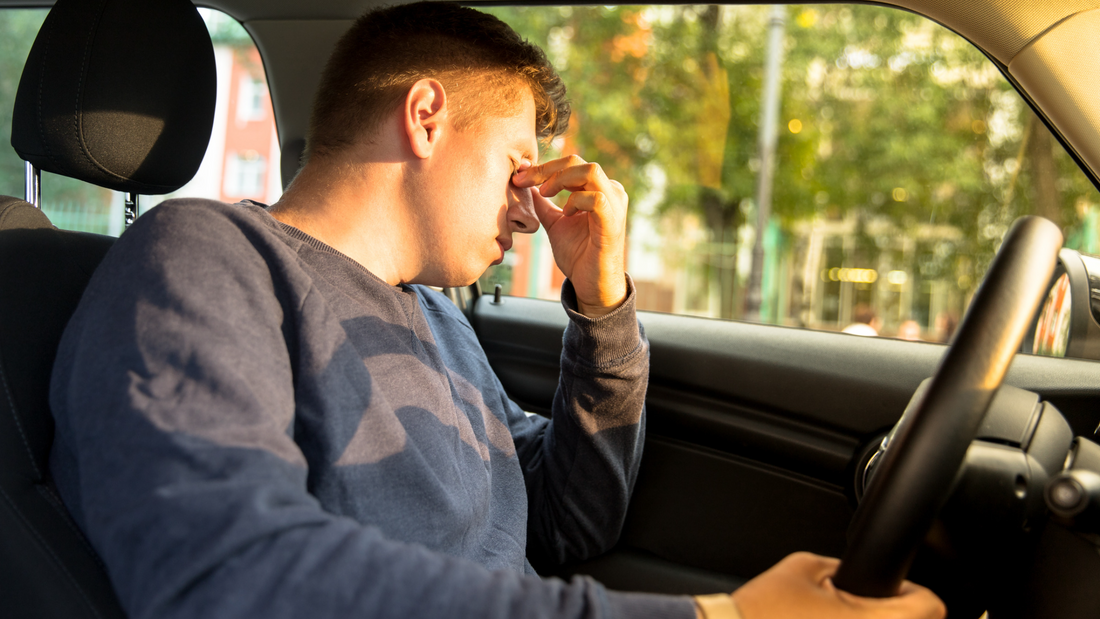Teens and driving can be a dangerous combination. Teens are more likely to be involved in car accidents than adults, and many of these accidents are drowsy driving accidents. So, what is drowsy driving? It's exactly what it sounds like: when you lose focus on the road due to fatigue or other causes. Because teens naturally struggle with sleep more than adults do, this issue becomes more prominent among them—especially when combined with their inexperience behind the wheel! This guide will help you understand why teens are at risk for drowsy driving, how tiredness affects their judgment when behind the wheel, how reducing risks can help protect your teen driver from an accident caused by fatigue...and much more!
Teens and Driving
Teen drivers are more likely to be involved in drowsy driving crashes than adults. This is because they don't have enough driving experience, so they're less likely to know how dangerous it can be when you're tired.
- Teens get less sleep than adults.
- They also tend to stay up later and wake up earlier on school days, which means they are often sleepy during the day when they need their energy for homework and other activities.
Why Teens Are at Risk for Drowsy Driving
The reasons behind this are simple. Teens have less experience, and therefore may be more likely to underestimate the effects of fatigue on their driving ability. They also have less self-control over their impulses, which can lead to poor decision-making while behind the wheel (like choosing to drive when they're tired). Additionally, teens may be more likely than older drivers to suffer from sleep deprivation due to school schedules or other obligations--and even if these teens aren't sleepy at the time of their crash, being chronically sleep deprived increases your risk of drowsy driving crashes by as much as six times! Finally, some medications prescribed for conditions such as ADHD and depression can cause drowsiness; while only a small percentage of teens take them (about 1%), those who do could put themselves at additional risk for crashes caused by drowsiness.
The Brain and Sleep
Sleep is a necessary part of life, but many teens don't get enough of it. Sleep deprivation can lead to accidents and poor performance at school or work.
The brain needs sleep to function properly. Sleep helps you learn new things, remember what you've learned, stay focused on tasks throughout the day, feel good about yourself and others around you (your mood), grow physically strong bones and muscles--and much more!
Sleep also helps your growing brain develop properly by giving it time off from thinking so much so that important processes take place without interference from other thoughts or activities during waking hours. Teens need more sleep than adults because their bodies are still growing into adulthood; therefore, they require more restorative time for everything else in their lives (such as homework) not only get done but also be done well so that with less stressors at home/school/work there will be less distractions keeping youth awake longer than needed.
Driving Tired Can Affect Your Teen's Judgment
Driving tired can affect your teen's judgment. When teens drive tired, they're more likely to make bad decisions and mistakes that could lead to an accident or injury.
Your teen's judgment can affect their driving. If you notice that your child seems distracted or has trouble concentrating when driving at night, it could be because he or she is sleepy from staying up late and not getting enough sleep during the week. Helping your teen get enough sleep will help him or her stay alert while behind the wheel so he doesn't have any accidents as a result of being tired while driving!
Reducing the Risks of Your Teen Driving Tired
As a parent, you can help your teens avoid drowsy driving by setting a good example. You should get enough sleep and avoid driving while tired yourself. If possible, try not to work long hours or have other responsibilities that will keep you awake at night. Take short naps when possible, during the day in order to stay alert during the times when your teen will be driving home from school or activities with friends.
If it's unavoidable for your teen to drive at night--for instance, if he lives far away from his friends' houses and needs transportation after dark--talk with him about how best to prepare himself before getting behind the wheel:
The best way to help your teen avoid drowsy driving is to set a good example. Make sure you get enough sleep and exercise, eat healthy meals at regular times, and avoid alcohol or caffeine before bedtime.
Teach your teen how to recognize the signs of drowsy driving:
- Lightheadedness
- Dizziness or fogginess in the head
- Sleepy feelings that make it difficult to stay awake (even though you're not actually asleep)
Conclusion
It's important to keep in mind that driving tired is a dangerous habit, and it can be hard to break. But if you're worried about your teen driving tired, there are steps you can take to help them stay alert on the road. First off, make sure they get plenty of sleep before hitting the road--about 8 hours per night is ideal! If they have trouble falling asleep at night or staying asleep long enough each morning (especially if they work or go to school), then consider trying out some natural supplements like melatonin or valerian root as an alternative solution for getting those much-needed rest cycles throughout each day.

